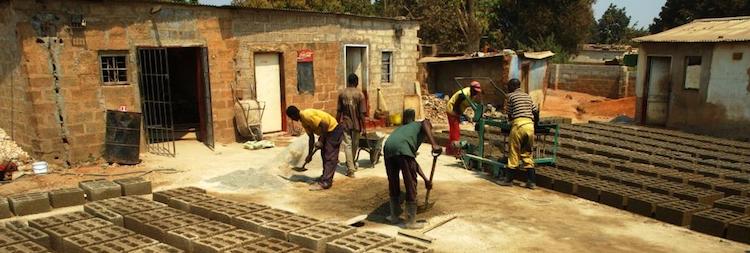By Robert Johnson
BRUSSELS (ACP-IDN) – Transforming ACP cities, leaving no one behind engaging in large scale investments in slums is the central theme of the three-day 3rd ACP-EC-UN-Habitat International Tripartite Conference in Brussels, headquarters of the European Union and the capital of Belgium.
The African, Caribbean and Pacific Group of States (ACP) is an organisation composed of 79 African, Caribbean and Pacific states: 48 countries from Sub-Saharan Africa, 16 from the Caribbean and 15 from the Pacific. All of them, save Cuba, are signatories to the Cotonou Agreement, also known as the “ACP-EC Partnership Agreement” which binds them to the European Union.
The conference concluding on November 16 has assembled ministers, mayors, civil society and community leaders, NGOs, academia, private sector, research institutions, regional development bodies and financing partners as well as other UN and development agencies from all over the world to share experiences, achievements, methodologies and tools for up-scaling slum upgrading and affordable housing.
The aim of the conference is to create a platform for a community of practice to learn and exchange knowledge on slum upgrading and prevention practices, successful approaches in different contexts, building and strengthening partnership opportunities for investments in slum upgrading at scale.
There are one billion slum dwellers worldwide, and it is estimated that an additional three billion people will need adequate housing by 2030 as populations grow and people continue to move to cities.
Since 2008, the Participatory Slum Upgrading Programme (PSUP), a tripartite initiative of the ACP Secretariat, the European Commission (EC), and UN-Habitat, has advocated for slum dwellers’ rights, and contributed to efforts to end poverty and raise living standards in informal settlements and slums.
These efforts are consistent with the implementation of Target 11.1 of the 2030 Agenda for Sustainable Development and its Sustainable Development Goals: “By 2030, ensure access for all to adequate, safe and affordable housing and basic services and upgrade slums.”
PSUP is well positioned as a comprehensive global programme for delivering inclusive and sustainable urbanization. The programme has worked with 35 Country Teams and mobilized more than 1,200 local and national governments, NGOs and CBOs for implementation through a multilevel governance framework and 50 National Development Frameworks for participatory and strategic planning, and diverse financing strategies, to steer citywide and inclusive development that benefits all.
The conference aims at (i) creating a platform for a community of practice to learn and exchange knowledge on slum upgrading and prevention practices and successful approaches in different contexts;
(ii) building and exploring strengthened partnership opportunities for slum upgrading at scale;
(iii) agreeing on a common declaration to support the global policy dialogue, involving outreach and advocacy to push for collective action that creates an enabling environment and commitment to meet the financial requirement for up-scaled citywide participatory slum upgrading and prevention; and
(iv) sensitizing the private sector on investment potentials and governance for dedicated and predictable financing.
A strong focus of the conference is on achieving sustainable financing at different scales, on resource mobilization, and the role of coordination through a multilevel governance framework to improve participation, gender mainstreaming, youth involvement and climate resilient upgrading of slums and informal settlements.
According to UN-Habitat, the conference is an opportunity to target different stakeholder groups of the PSUP, expose them to “new thinking” and practical tools for sustainable urbanization and slum upgrading, raise awareness on what slum dwellers can contribute to the broader urban environment, and to increase collaboration, partnerships and knowledge exchange on urban innovations regarding inclusive, participatory and sustainable urban planning.
Following the conference, the knowledge exchange between countries will offer the possibility to trigger South-South, North-South and triangular partnerships and will mobilize countries to engage more actively, investing in participatory slum upgrading at scale. [IDN-InDepthNews – 15 November 2018]
Image credit: UN-Habitat
IDN is flagship agency of the International Press Syndicate.
facebook.com/IDN.GoingDeeper – twitter.com/InDepthNews

